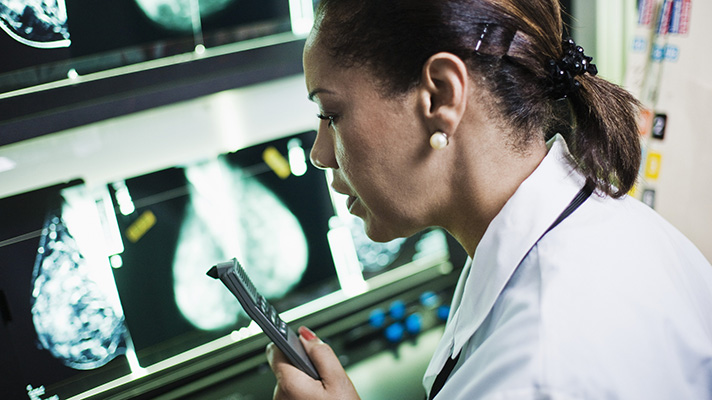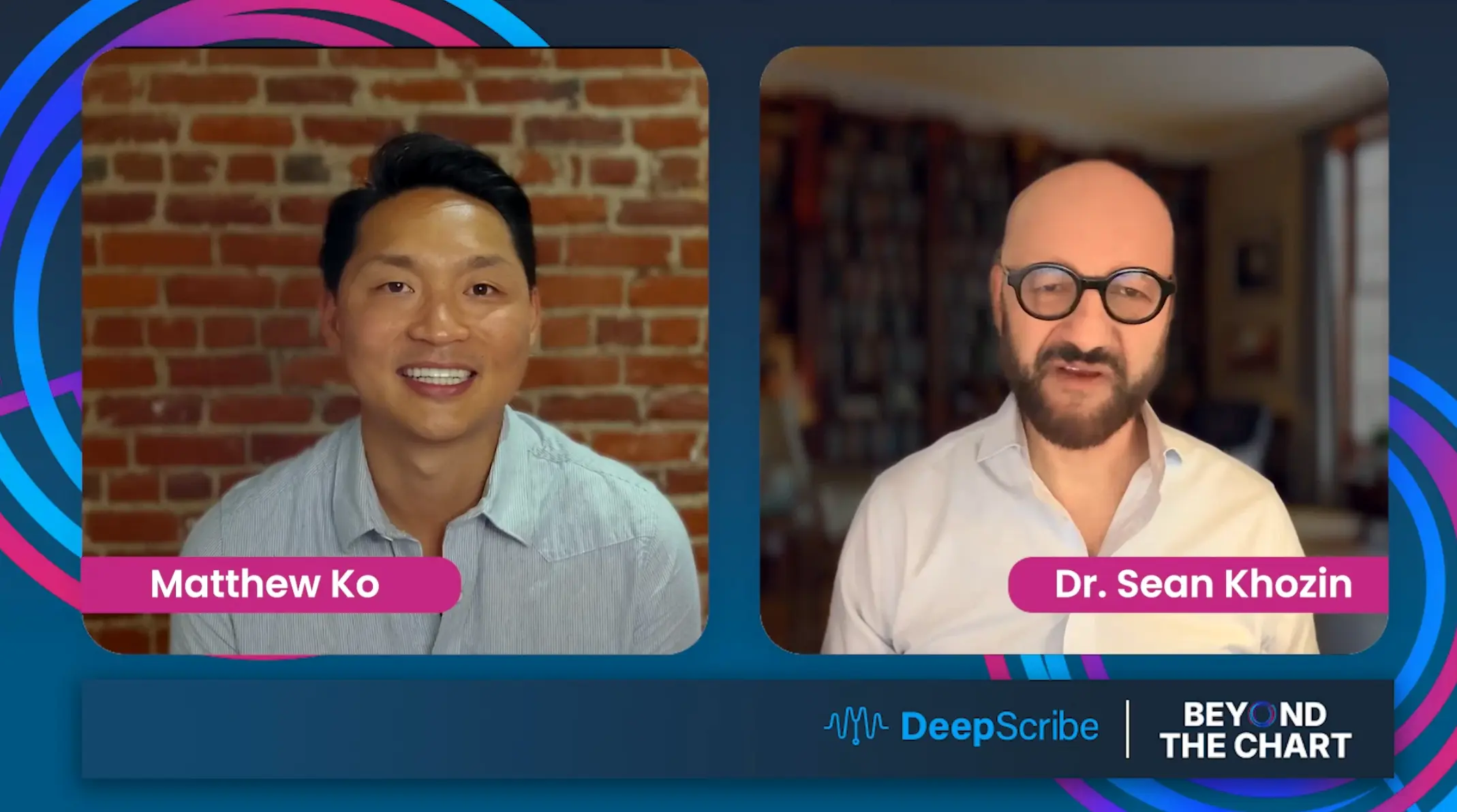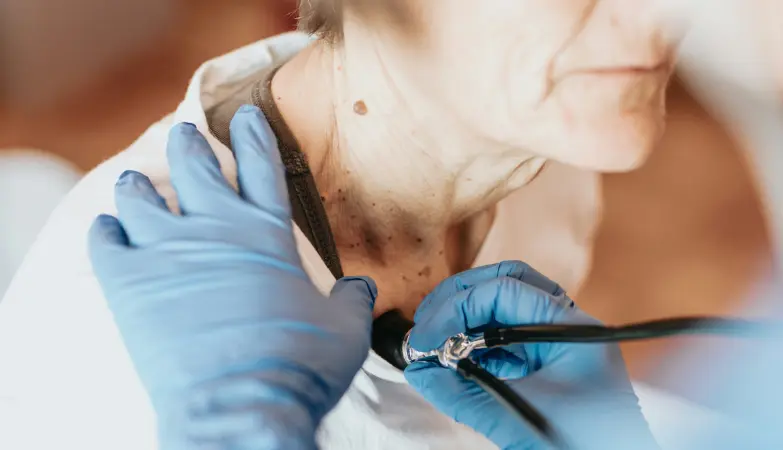Are Medical Dictation Devices Necessary?
As costs, security risks, and the COVID-19 pandemic continue to steer physicians away from medical scribes, many are choosing to adopt medical dictation devices instead. Medical dictation devices are voice capturing tools that healthcare professionals use to generate a spoken medical report and have proved valuable to care providers. But to understand their role in this space, we must know how they work and understand their pros and cons.


Are Medical Dictation Devices Necessary?
The shift in medical documentation has created a void for numerous solution based tools and devices to fill. As costs, security risks, and the COVID-19 pandemic continue to steer clinicians away from medical scribes, many are choosing to adopt medical dictation devices instead.
Medical dictation devices, in their truest form, are voice capturing tools that healthcare providers use to generate a spoken medical report. Usually, these dictated reports are then sent off to third party medical transcriptionists to be crafted into a medical note and applied into an EHR.
Medical dictation devices have proved valuable to healthcare providers since the HITECH Act drastically changed medical documentation, but to understand their value and necessity we must understand how medical dictation devices work and differ from one another.
Traditional Medical Dictation Devices
Traditional medical dictation devices are tools that record a clinician's voice and convert it to a secure audio file. These devices are most commonly used after a patient visit and allow healthcare professionals to use their voice to record the proper medical information. Clinicians use dictation devices as a replacement for typing.
These dictated reports contain a patient’s medical history and new diagnoses, as well as plans for treatment and care that were discussed during a visit. The recording is then sent of to a HIPAA compliant medical transcriptionist who converts the audio file into a SOAP medical note. In the wake of a shifting healthcare landscape, these devices have done well to relieve clinicians of some of their clerical load.
Get the Free eBook: The Complete Guide to Medical Documentation Solutions

Advanced Medical Dictation Devices
Typically, dictated audio files captured by a traditional dictation device (like those discussed above) must be sent to a certified transcriptionist in order to be documented and transcribed into a medical note. Now, however, there are a handful of emerging dictation companies that rely on the power of AI, speech-to-text technology and voice recognition software to remove the transcriptionist altogether.
With these devices, clinicians dictate the patient’s medical information gathered from the encounter and the device not only captures that spoken report, but is also capable of using it to complete the proper documentation of a medical note and populate the discrete fields of an EHR. Of course, the nature of dictation means that the clinician must specifically prompt the device to log certain criteria or complete specific EHR tasks, but it helps speed up the process of documentation by eliminating transcriptionists.
This also means clinicians don’t need to pay a third party medical transcriptionist for their services or endure long turnaround times for their completed medical notes.
Cons of Medical Dictation Devices
Relieving Typing, not Documentation
The primary downside of any medical dictation device, traditional or advanced, is that while it relieves the burden of typing a medical note, it does not relieve the burden of medical record documentation.
In order to produce proper documentation, clinicians still must sit down and dictate the information gathered from a patient visit. Not only does this take time, but it requires an immense level of recall from the patient encounter itself. In order to stay on top of everything covered during the visit, a clinician will either need to take notes or use a different recording device to ensure they don’t miss any pertinent info. This process inherently takes time and mental energy, and while dictation devices may prevent a clinician from having to type their notes, it essentially just replaces the task with a different approach that is only slightly better.
Cost
AI-powered dictation devices allow clinicians to break free from medical transcriptionists and their associated costs, but they can be cumbersome and difficult to use. These advanced dictation devices simply substitute transcriptionists with a more robust dictation system that works, but isn’t incredibly seamless, efficient or cost effective. Just like traditional dictation devices, advanced ones relieve certain burdens only to replace them with others.
But Are Medical Dictation Devices Really Necessary?
How individual clinicians choose to work is deeply personal, and we don’t see our role in this industry as telling people what or what not to do. What we do know, however, is that medical dictation devices are a solutionary approach to the complex issue of medical record documentation — a problem that desperately needs a device that is totally transformative.
Up until recently, there have not been any all-encompassing solutions available to healthcare professionals that can totally take care of all of their needs. Some use scribes, some use dictation devices, some use transcriptionists, some use nothing at all. All of these solutions attack a different set of problems, and are good at addressing certain issues, but not as good at addressing others. The choice to use any particular one is personal and clinicians are entitled to that process.
We just want clinician to know that there is now an all-encompassing device that can totally transform the difficulties tied to medical documentation. One that uses a highly advanced AI system to totally automate all of a clinician's documentation. A true solution. DeepScribe listens in on a patient visit, extracts relevant information, and autonomously creates a medical note that seamlessly integrates into a clinician's EHR platform. No writing, no typing, no dictation.
To us, that type of device is necessary.
text
Related Stories
Realize the full potential of Healthcare AI with DeepScribe
Explore how DeepScribe’s customizable ambient AI platform can help you save time, improve patient care, and maximize revenue.




